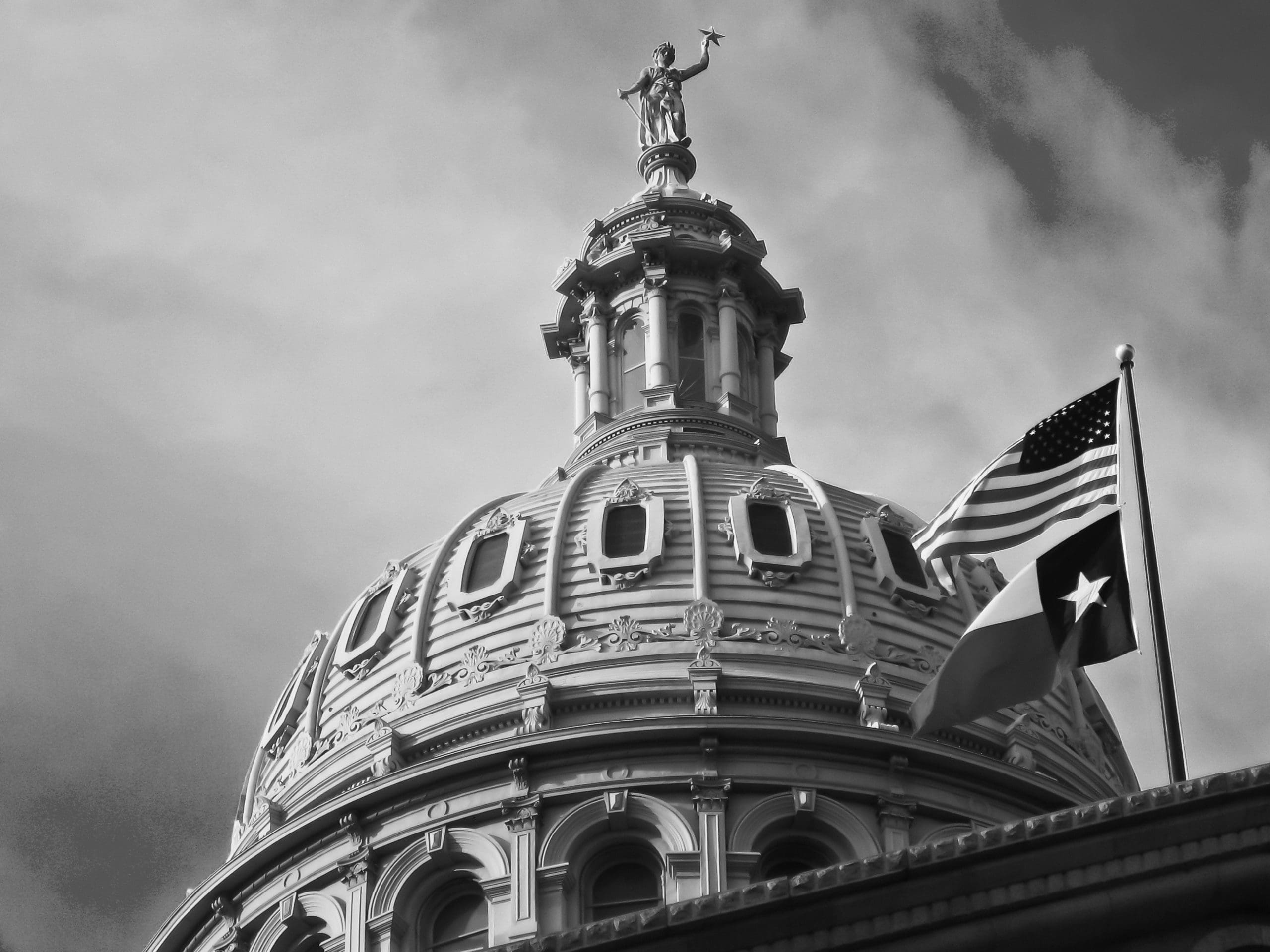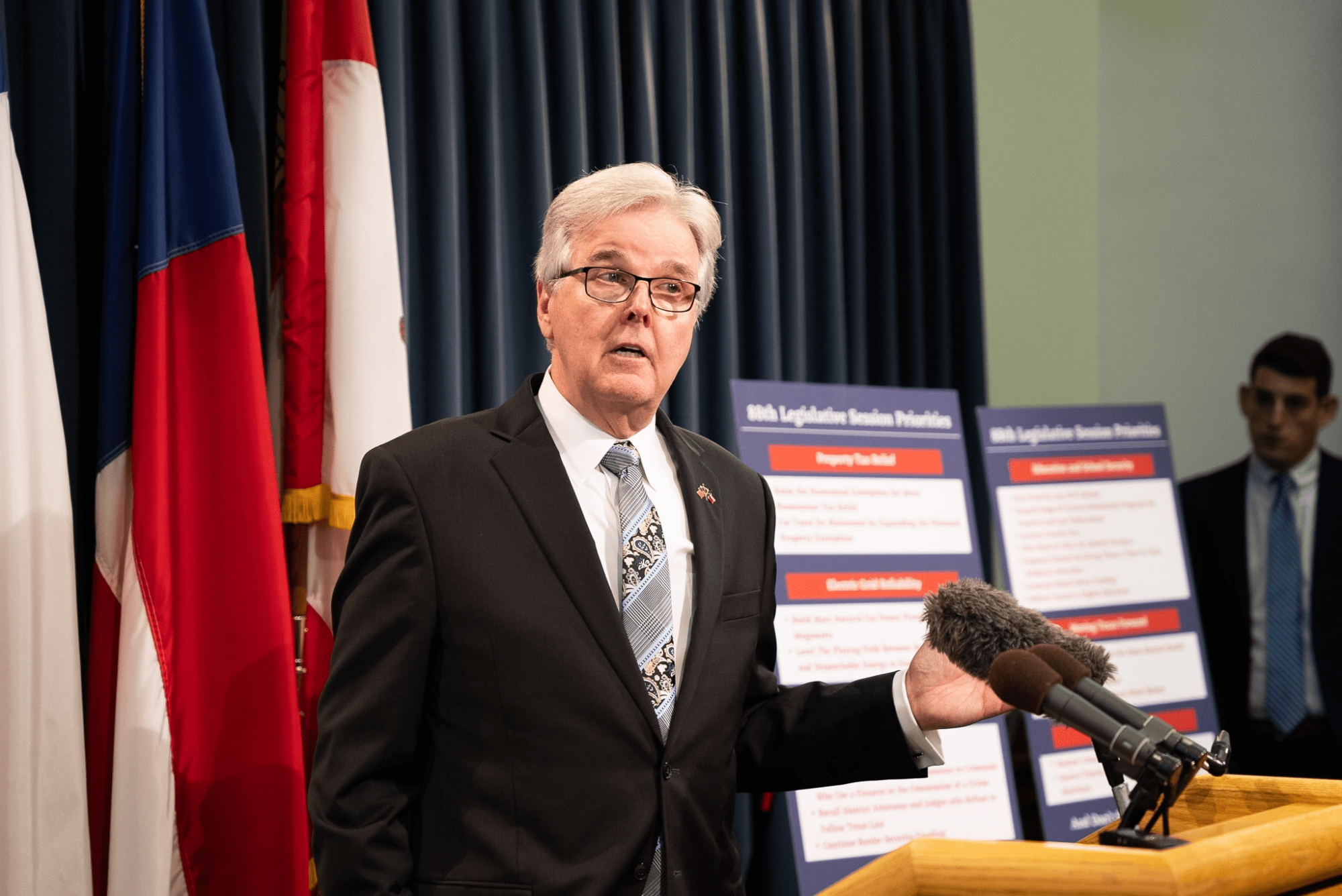Wednesday marks the day by which six hundred and sixty-six different pieces of legislation passed in the 87th regular legislative session take effect and become law.
The Texas Legislature is currently in the midst of the second called special legislative session, considering a mixture of bills that either did not make it through the entirety of the legislative process in the regular session or are new issues prioritized by Gov. Greg Abbott.
A non-exhaustive list of some of these new laws follows.
Constitutional Issues & State Affairs
Gun Rights
After years of pressure from citizen activists, Texans over the age of 21 can now carry their firearms without being required to also hold a permit or receive permission from the government to do so. House Bill 1927, or constitutional carry, authored by State Rep. Matt Schaefer (R–Tyler), boasts one of the more interesting legislative sagas during the regular session. It has long been a legislative priority of the Republican Party of Texas, having been approved by the delegates to the state GOP convention a decade ago.
Similarly, several other firearm-related bills go into effect Wednesday. One prohibits cities and counties from enforcing federal laws regarding firearm suppressors. Another declares Texas as a sanctuary state for the Second Amendment, ultimately prohibiting a state entity from assisting in the enforcement of new federal firearm laws or regulations under the threat of withholding state funds for jurisdictions who do so. In response to governmental jurisdictions prohibiting or restricting the operations of firearm and ammunition businesses over the course of the last year, the Legislature passed a bill to protect them. A bill passed that prohibits the state from contracting with private companies that discriminate against firearm or ammunition companies.
Abortion
More than 53,000 reported abortions took place in Texas in 2020. Thus far in 2021, there have been more than 14,000 reported abortion procedures. Though abortion remains legal, the Texas Legislature did make strides to curtail the procedure once a fetal heartbeat is detected by passing the Texas Heartbeat Act. Authored by State Sen. Bryan Hughes (R–Mineola), the new law also gives any Texan legal standing to bring a suit against an abortion provider who knowingly violates the law. Abortion providers are currently suing to block the implementation of such a law.
Another bill, commonly referred to as the “trigger bill”, would seek to completely outlaw abortion in Texas, but it will only take effect if the U.S. Supreme Court overturns its own Roe v. Wade decision.
Public Camping Ban
To address an exponentially growing problem in many of the larger metropolitan areas in Texas, the state Legislature passed House Bill 1925, which makes it a criminal offense for a person to intentionally or knowingly camp in a public place while also precluding a local jurisdiction from prohibiting or discouraging the enforcement of any public camping ban. The bill was authored by State Rep. Giovanni Capriglione (R–Southlake).
Star-Spangled Banner Protection Act
In response to Dallas Mavericks owner Mark Cuban announcing he would not play the Star-Spangled Banner before home games in February, Lt. Gov. Dan Patrick made it one of his priority issues to require that professional sports teams that receive funds from the state of Texas be required to play the anthem. The bill was named the Star-Spangled Banner Protection Act.
Healthcare
One hundred days into the 87th regular legislative session, House Speaker Dade Phelan announced several pieces of legislation as his healthcare priorities. Of the ones considered, only a handful passed through the entirety of the legislative process.
One bill creates a prescription drug savings program for uninsured individuals. Authored by State Rep. Tom Oliverson (R–Cypress), the program, established under the management of the Texas Health & Human Services Commission, would use money from a newly established trust fund to help provide prescription drugs at a discounted rate. Supporters indicate that this would increase access to affordable prescription drugs.
Another bill expands Medicaid benefits for pregnant women for an additional year following the date of their delivery in response to concerns that were raised as a part of a 2020 report from the Maternal Mortality and Morbidity Review Committee.
Medical Marijuana Expansion
The Legislature also saw fit to expand the compassionate use program by increasing the percentage of THC allowable from that of 0.5 percent to 1 percent for medical cannabis oil. The program currently serves individuals with certain epileptic and autistic conditions but was expanded for individuals suffering from any form of cancer or post-traumatic stress disorder.
Education
Critical Race Theory “Ban”
Another bill that proved to have quite an interesting legislative saga was that of the purported ban on critical race theory in public schools. Authored by State Rep. Steve Toth (R–The Woodlands), the bill changes social studies curriculum, limiting what can be discussed in classrooms. The bill was subjected to several amendments that watered down its effectiveness by the time it got through the legislative process, causing Abbott to add improvements to the supposed ban for consideration in the ongoing special session.
1836 Project Funding
The Legislature established an 1836 Project Advisory Committee charged with creating materials to promote patriotic education and increase the awareness of Texas values. The bill was authored by State Rep. Tan Parker (R–Flower Mound), and the established committee will be comprised of nine members appointed by the governor, lieutenant governor, and speaker of the House to help coordinate and direct project activities.
Pre-K Class Sizes
A bill limiting the size of pre-kindergarten classes will also go into effect. The new law caps the maximum number of students to 22, which is currently the same maximum allowed size for other elementary school grades.
Business & Commerce
The Legislature passed a bill that prohibits a state agency or political subdivision from entering into certain contracts unless the company being contracted with provides written documentation that they do not and will not boycott energy companies. It also requires the Texas comptroller to maintain a list of all financial companies that do boycott emergency companies while also authorizing the Texas attorney general to bring any action necessary to enforce the prohibition.
The Budget
As passed through the Legislature, the state budget for the next biennium (Fiscal Years 2022-23) provides almost $250 billion for various governmental agencies and programs.
Shortly after the conclusion of the regular legislative session, Gov. Greg Abbott employed his line-item veto power and got rid of funding for the state Legislature in retribution for two of his emergency legislative items, election integrity and bail reform, having their legislative prospects ended at the hands of House Democrat lawmakers who broke quorum after being enabled by House Republican leadership to do so.
The restoration of such funding is being considered in the ongoing special session.
Criminal & Civil Justice
The Legislature passed several bills that both increased and decreased criminal penalties for certain offenses. In response to a wave of protests over the last year where protestors would obstruct highways, one such bill increases the penalty for blocking an emergency vehicle like an ambulance, a state jail felony.
To prevent large municipalities from defunding law enforcement, the Legislature also passed a bill that would allow the state to punish those cities by preventing any increase in property taxes and reducing revenues from sales tax. The bill was authored by State Rep. Craig Goldman (R–Ft. Worth).
The Legislature passed a bill to allow Texas law enforcement agencies to apply for a grant from the Office of the Governor to mitigate the costs of data storage for recordings that are created from body-worn cameras. Similarly, they required that law enforcement officers keep their body-worn cameras on during the entirety of any active investigation. They prohibited law enforcement from using excessive force or chokeholds during an arrest unless it is absolutely necessary to prevent injury.
A bill was enacted to remove arbitrary barriers to probation or community supervision. They passed a bill requiring enhanced training for law enforcement, as well as requiring that all law enforcement agencies in Texas adopt a model policy within six months. The Legislature also passed a bill aimed at eliminating financial barriers for those seeking to re-enter society after they have served their jail sentence.





